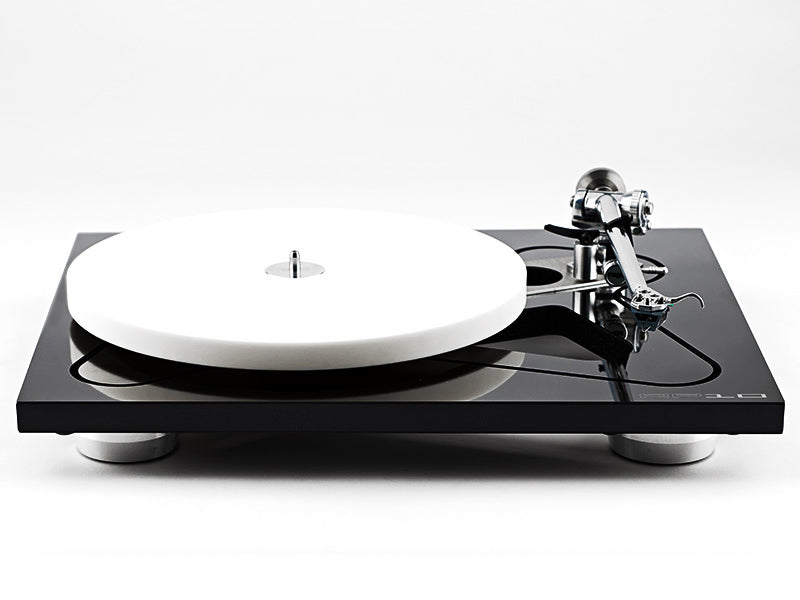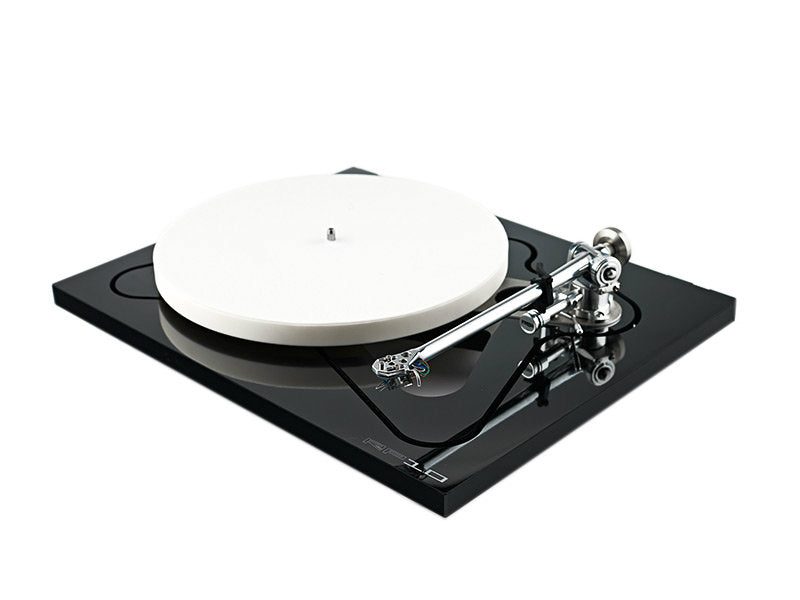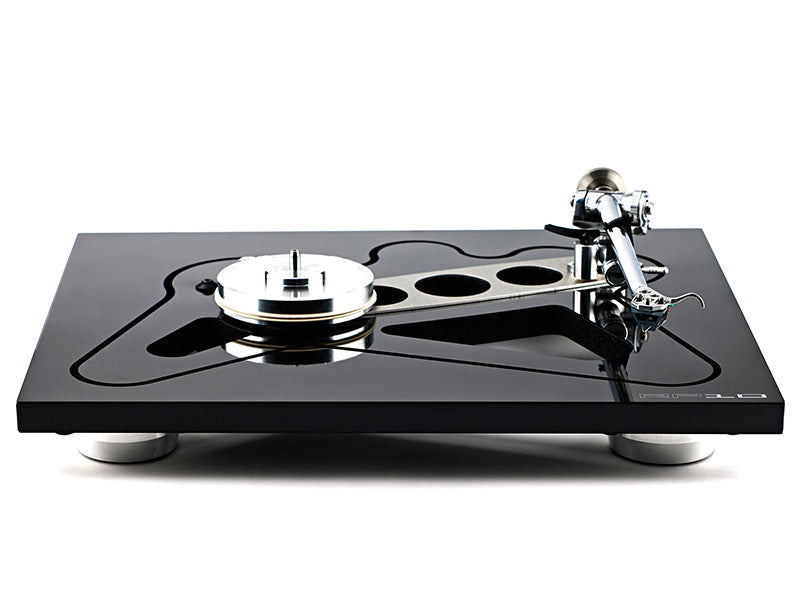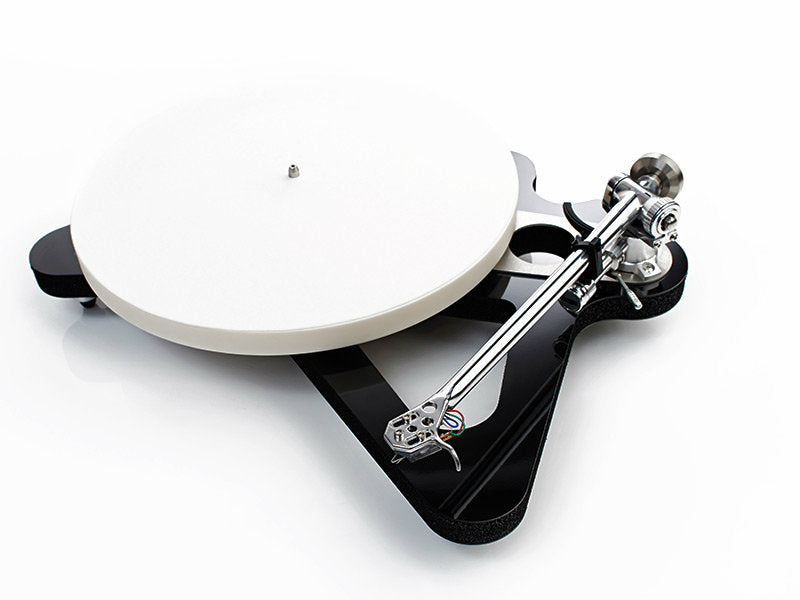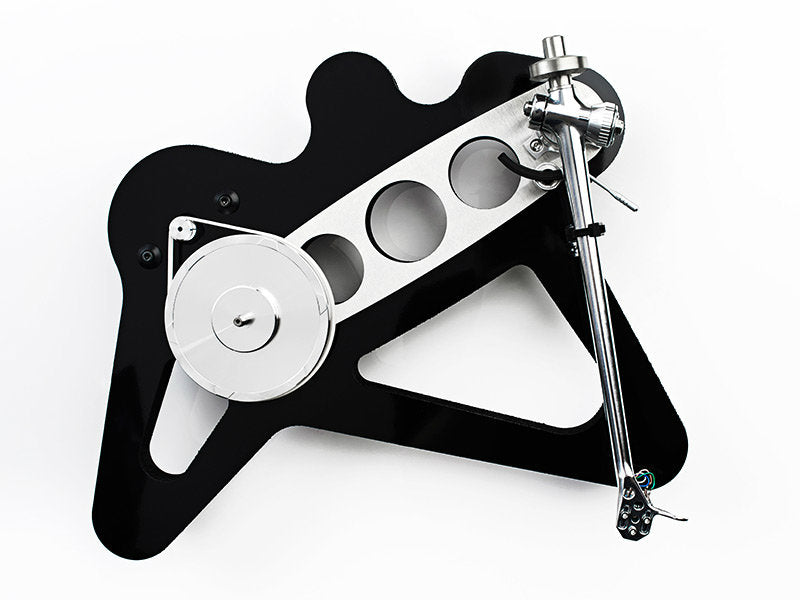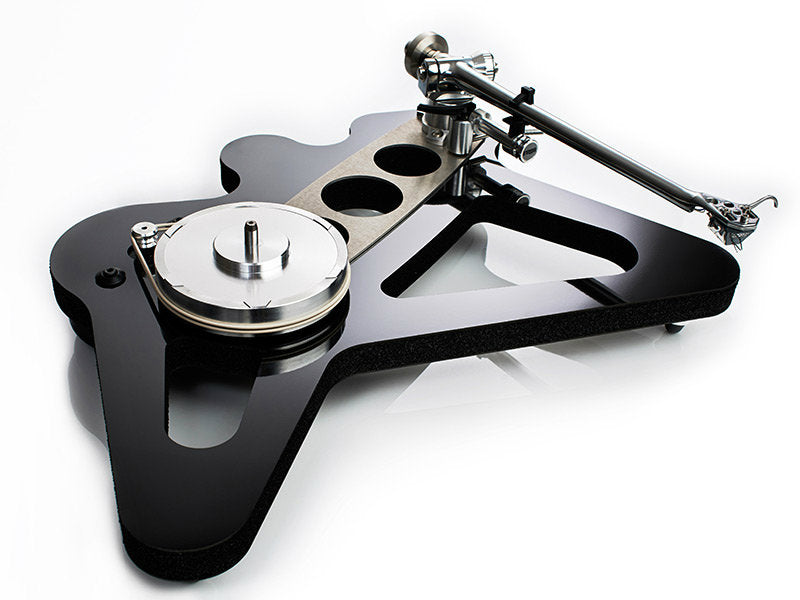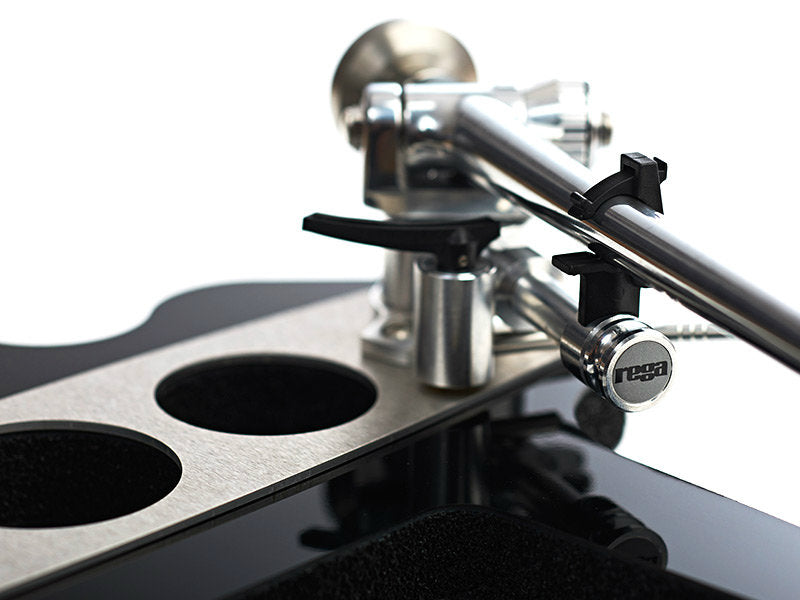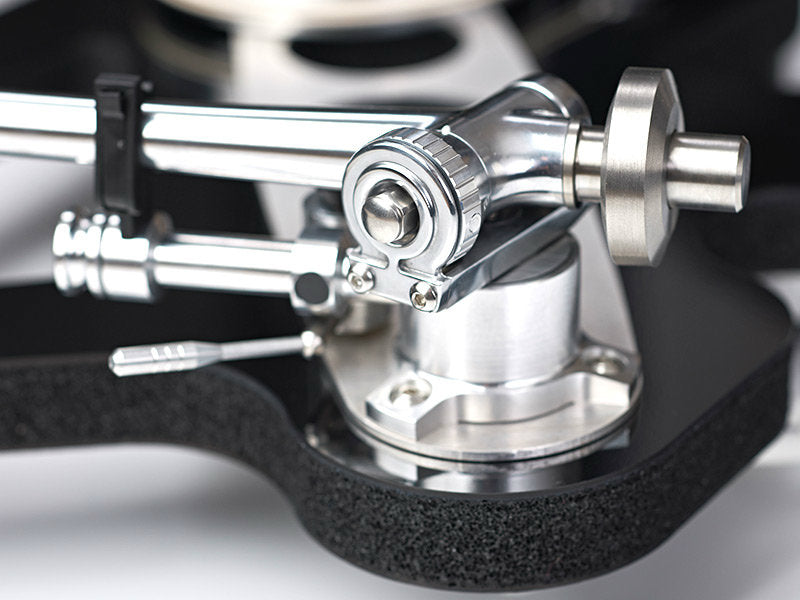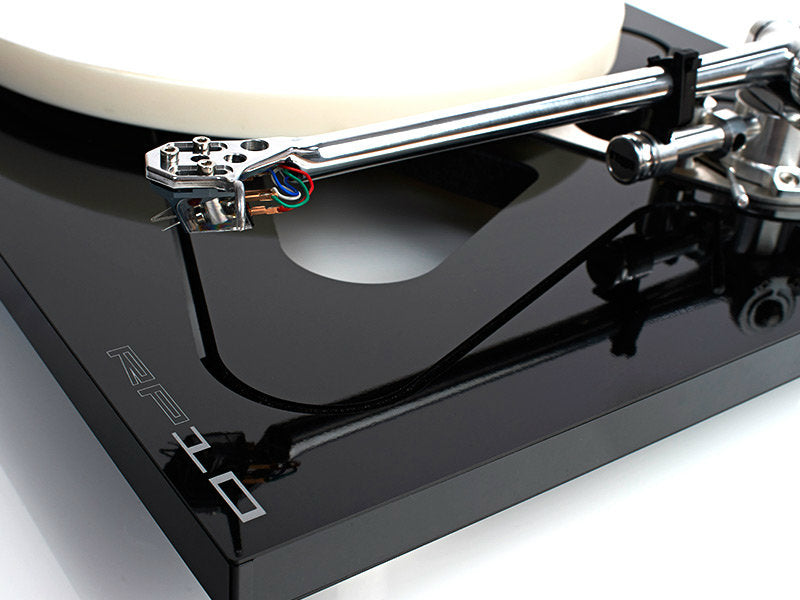CALL FOR AVAILABILITY - 855-991-8181
Featuring the brand new RB2000 tonearm built around our radical new plinth design, a ceramic flywheel effect platter and the custom RP10 power supply (allowing total control and accuracy over both motor vibration and speed performance) guarantee the highest level of performance.
RP10 Custom power supply
Housed in Rega's vibration and speed control circuit dedicated to running the 24v low noise motor. The speed and control of the motor is achieved by using a new DSP (Digital Signal Processing) generator built upon a high stability crystal. This device will divide the accurate square wave from the crystal to the exact frequency required to turn the platter at the selected speed. The DSP core will also generate a near perfect sinusoidal waveform to power the motor. Factory set vibration and speed adjustments are then made to the power supply to tune the motor for optimal performance.
RB2000 Tonearm
The RB2000 uses improved bearings with each one being hand selected to be an interference fit with the paired spindle matching both the inside and outside diameters. This Rega developed method of increasing the amount of detail retrieved from the record surface is designed specifically to maximize performance of the tonearm and cartridge. The entire tonearm structure is designed to have the minimum of mechanical joints while using the stiffest materials in all critical areas.
A brand new low mass, precision engineered, vertical bearing assembly has been manufactured to further compliment the design philosophy. The RB2000 uses the latest award winning Rega arm tube. Each one is meticulously hand polished (keeping mass to an absolute minimum) and has been completely redesigned to redistribute mass and further reduce stresses and resonances. This advanced design tube increases the stiffness and rigidity of the overall assembly, while reducing stress on the bearings.
Aluminum skin and Phenolic bracing
A super lightweight plinth combined with a double brace mounted specifically where the increased rigidity is required (between the tonearm mounting and the main hub bearing) forms a structurally sound “stressed beam” assembly. This design prevents energy absorption and unwanted resonances which will add un-natural distortions to the music.
Super flywheel effect ceramic platter
The RP10 uses a custom ceramic flywheel effect platter. The platter is produced from ceramic oxide powder which is compressed, fired and diamond cut to ensure perfect accuracy and flatness across the surface.
24v Low noise motor
The motor is a high specification, 24v twin phase synchronous unit. It is controlled by Rega's unique and innovative RP10-PSU power supply. The motor drives the CNC machined pulley, sub platter and hub-bearing assembly via the twin belt drive. Each motor is individually hand tuned to its own custom power supply in the factory to minimize vibration, motor noise and ensure optimum performance.
Skeletal plinth design with polyolefin foam core
Rega has always researched methods of producing light but rigid plinths. The technology is simple: unwanted noise at microscopic levels is developed by the turntable motor and main bearing.
The plinth can also pick up airborne vibration from the music. Beginning in the 1970’s, Rega pioneered the use of a stressed skin structure for the plinth. This uses two layers of phenolic resin with a lightweight particle or fibre board sandwiched between the skins.
This technique has been used in many applications where stiff, light structures are needed such as an aircraft wing or a Formula 1 chassis. The current increase in interest in turntables has allowed Rega to research and develop higher technology structures for the customer who is happy to pay a little more for higher sound quality.
The all new RP10 turntable utilizes a unique new stressed skin structure produced from thin phenolic skins, sandwiching a featherweight nitrogen expanded, closed cell, polyolefin foam core. The RP10 plinth is 7 times lighter than the weight of the original Planar 3 plinth. Rega has added even more stiffness in the crucial area between the arm and the main bearing.
De-coupled outer frame and dust cover
A common problem for many skeletal design turntables is the inability to incorporate an effective dust cover into the design. We have constructed an outer frame that minimizes contact between the inner and outer plinth. The only points of contact are three location devices on the feet which centralizes the inner and outer plinths perfectly. The RP10 can be used without the outer frame if so desired.
- Handmade RB2000 tonearm, precision engineered bearing and aluminum sub platter
- Ceramic oxide diamond cut flywheel platter
- Fully adjustable RP10 dedicated power supply tuned to its own motor
- Rega’s pioneering skeletal plinth design
- Aluminum skin phenolic bracing

